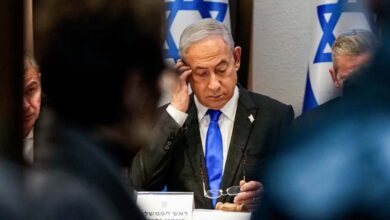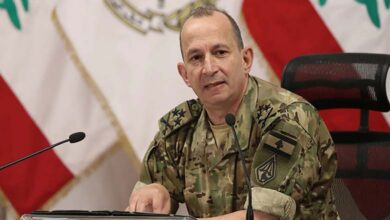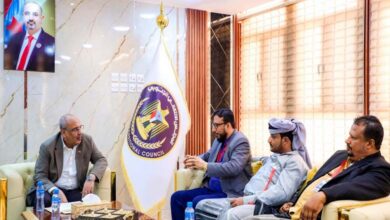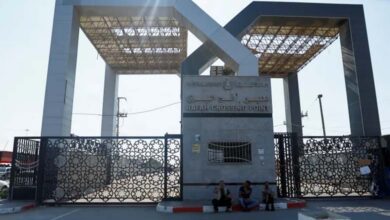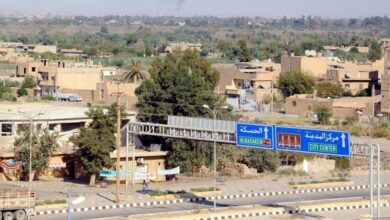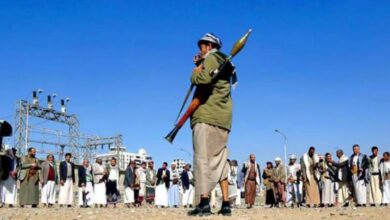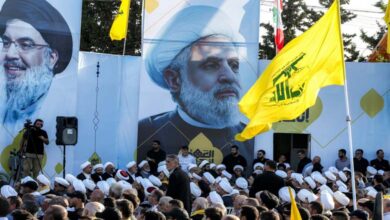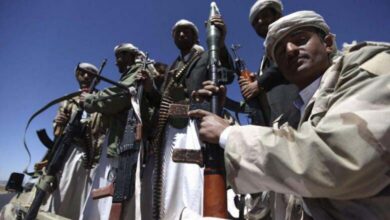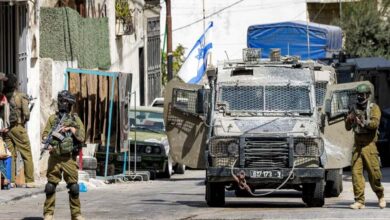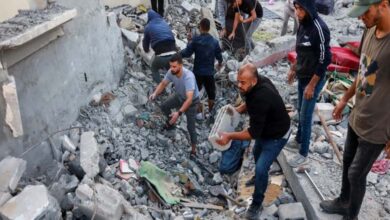In Gaza… medicine is a rare commodity… and polio is a looming threat
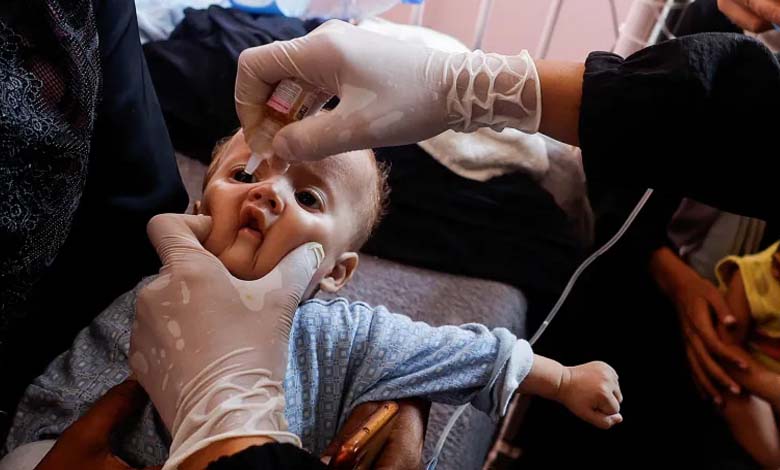
Warnings have increased from United Nations organizations, notably UNICEF, regarding the worsening crisis of polio virus spread in the Gaza Strip due to the extensive destruction of vital infrastructure caused by ongoing Israeli bombardments.
-
Gaza Negotiations: 7 Arduous Hours
-
Gaza War: How Did “Amazon” Contribute to the Precision of Israeli Airstrikes?
Kadhim Abu Khalaf, UNICEF spokesperson, has expressed deep concern that the destruction of Gaza’s sewage network could lead to a major health disaster that might extend beyond the Gaza Strip to wider regions.
A Potential Health Catastrophe
Abu Khalaf explained that the ongoing Israeli bombardments have led to the destruction of a large part of Gaza’s infrastructure, including hospitals, schools, health centers, and the sewage network.
-
In Gaza: Bombing and Overcrowding, Two Faces of One Death
-
Despair Increases in the “Death Zone”: UN Alarm Over “Appalling Conditions” in Gaza
This widespread destruction increases the risk of contamination of drinking water with sewage, creating an ideal environment for the spread of the polio virus, which can spread rapidly under deteriorating health conditions.
He pointed out that contaminated water provides a fertile ground for the proliferation of viruses and bacteria, increasing the likelihood of polio infections among children, a disease that can lead to permanent disabilities or even death.
-
Israel Announces End of Military Operations in Gaza
-
Analysts reveal the suffering of citizens in Gaza due to the ongoing conflict
This health crisis adds to the other crises faced by Gaza’s residents, who live under a severe blockade and difficult living conditions, with deteriorating water quality and continuous shortages of food and medicine.
UNICEF and WHO Efforts to Address the Crisis
In the face of this potential disaster, international and local institutions are racing to prevent a health crisis in Gaza.
-
Illusory Optimism or New Pressures: What Lies Behind American Claims About Ceasefire Negotiations in Gaza?
-
Three Arab States Refuse to Participate in Gaza Peacekeeping Force
In this context, UNICEF, in collaboration with the World Health Organization (WHO), is conducting a large-scale polio vaccination campaign aimed at vaccinating as many children as possible to protect them from this deadly virus.
According to Rick Peppercorn, WHO representative in the occupied Palestinian territories, the campaign, which started three days ago, has shown notable success. It has surpassed its initial goals, with more than 161,000 children under ten vaccinated in central Gaza during the first two days, whereas the target was only 150,000 children.
-
Death Toll Rises in Gaza and Tunnel Discovered Under Philadelphi Corridor
-
Confessions of an Israeli Soldier: We Destroyed Homes in Gaza for “Trivial Reasons”
Peppercorn emphasized the importance of these efforts, noting that the humanitarian ceasefires that allowed the campaign to begin have been successful so far, with continued efforts to vaccinate children in other areas over the next ten days. Despite the early success, challenges remain, especially with ongoing military tensions and the continued destruction of infrastructure.
Long-Term Risks
The risk of polio spreading is not limited to Gaza’s children but could extend to other areas if the crisis is not contained quickly.
-
“Theft, Arson, and No Justification”.. Israeli Soldiers Refuse to Return to Gaza
-
New Study Reveals Shocking Facts About Gaza War Victims in Its Early Days
Polio is a highly contagious disease that can easily spread among children in an unsanitary and overcrowded environment like Gaza. This underscores the importance of international efforts to contain this virus before it turns into an epidemic that is hard to control.
Moreover, the destruction of infrastructure in Gaza complicates the efforts to provide necessary healthcare to the territory’s residents. With the destruction of hospitals and health centers, providing treatment and medical care has become more difficult, exacerbating the suffering of the population and complicating disease control efforts.
-
The UAE Begins Repairing Destroyed Water Lines in Gaza
-
Spokeswoman for the Palestinian Red Crescent: The Israeli Occupation Targets Hospitals in Gaza
Calls for International Action
In these difficult circumstances, calls are increasing for the international community to act quickly to provide the necessary support to Gaza’s residents, whether through providing urgent medical aid or pressuring Israel to halt bombings and allow for the reconstruction of the territory. Time is not on the side of Gaza’s children, who face a health threat that adds to a long list of daily challenges.
The destruction of Gaza’s sewage network is not just an issue of infrastructure but a health and humanitarian crisis that could lead to the spread of serious diseases such as polio.
-
CNN: New Israeli Evacuation Orders for Thousands of Palestinians in Gaza
-
Hamas is rebuilding its forces in Gaza by recruiting thousands of new fighters
The efforts of UNICEF and WHO to address this crisis are steps in the right direction, but they need greater support from the international community to ensure the protection of Gaza’s children from these escalating dangers. The fight against polio in Gaza is not just a health battle but a struggle for life and human dignity under unprecedented conditions of siege and destruction.
Medicine is a Rare Commodity
For her part, Fatima Saad, a Palestinian mother living in the heart of Gaza, shares her daily struggle to provide essential needs for her children.
-
9 months after the Gaza War… “Day of Paralysis” in Israel and protests sweep the country
-
“Loophole” in Gaza ceasefire negotiations… Hamas condition clashes with Israeli wall
Fatima says: “Since last October, it has become almost impossible to get medicine for our children or even for the elderly.”
She adds that the issue is not limited to polio vaccines; her twin children, aged a year and a few months, have not received any vaccinations since the outbreak of the war.
She continues: “Of course, we fear for their future health, but our focus now is on feeding them and protecting them from Israeli bullets and missiles. We leave the future to God and strive to protect their present.”


